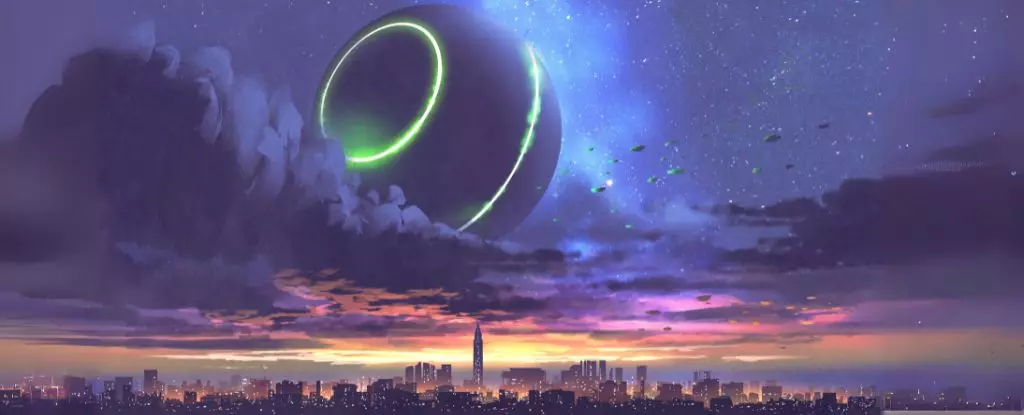In a world grappling with myriad challenges—from climate change to geopolitical tensions—the specter of space poses yet another layer of existential dread. The recent discovery of asteroid 2024 YR4 has reignited concerns among scientists and the public alike. While the probability of it striking Earth stands at a trivial 0.001%, this tiny fraction can feel intimidating enough to provoke anxiety about the potential devastation of catastrophic impacts. This fear is not just about this particular asteroid; it reflects a broader apprehension toward what lies beyond our atmosphere.
The narrative surrounding space threats unveils a curious juxtaposition: here we are, living organisms on a fragile planet, fixated on dangers that could fall from the heavens while often neglecting the pressing issues rooted in our own ecosystem. Asteroids, once considered a mere curiosity of astronomy, have transformed into symbols of vulnerability, igniting a mix of fascination and fear.
Perception Versus Reality
What is it about space that grips our psyche? Perhaps it is the fact that the cosmos embodies the ultimate unknown, where the rules as we understand them don’t always apply. Human civilization is, after all, a product of a carefully balanced ecosystem on Earth, and the cosmos represents a chaotic element that threatens to disrupt our stability. Although many assert that preparation for celestial threats is essential to outmaneuver potential disasters, the psychological effects of this orientation can lead to unhealthy obsessions with control, overshadowing significant concerns on Earth.
Daniel Deudney, a political scientist at Johns Hopkins, warns us of the implications of developing planetary defense technologies. He suggests that while we pursue the capability to deflect asteroids, the very technologies designed for protection could be misused to instigate conflicts. The implications of these advancements highlight the fragility of our humanity; by arming ourselves with space weapons, do we risk falling victim to the same hubris that brought about past conflicts? These narratives stir anxiety about human self-destruction relayed through the cosmic lens, forcing us to confront not only dangers above but also the darker parts of our nature on Earth.
A Historical Perspective
The fear of catastrophic celestial events is not a recent phenomenon. Historical narratives, such as the Sami tale of the Cosmic Hunt—which warns against the impatience of a hunter resulting in calamity—underscore humanity’s long-standing trepidation toward cosmic retribution. This ancient story symbolizes the interconnectedness we share with the heavens—our fate tied to forces greater than ourselves.
In contemporary storytelling, the resurgence of UFO phenomena encapsulates these fears. The conspiratorial obsession with extraterrestrial life expresses misgivings about humanity’s weaknesses, including paranoia toward authoritative entities and scientific communities. This interconnected fear resonates with more modern critiques of capitalism and inequality, especially as power increasingly consolidates in the hands of a few billionaires who seek to colonize Mars.
Virus Phobia: A Cosmic Conspiracy
Interestingly, cosmic fears are interwoven with our experiences of pandemic crises. The theory proposed by Fred Hoyle and Chandra Wickramasinghe, positing that life—and even diseases—may have extraterrestrial origins serves as a quintessential example of how our anxiety towards space can manifest in myriad forms. Skeptics of public health, especially during crises like COVID-19, latched onto such theories, weaving conspiratorial narratives that deflect accountability from human actions and societal disparities, instead attributing calamities to cosmic intrusions.
Such narratives highlight a profound existential dread—an unwillingness to face our responsibilities on Earth, thus projecting fears onto the universe. Rather than addressing the inequalities, neglect, and conflicts that define our global interactions, we indulge in cosmic myths to evade the gritty complexities of contemporary life.
Embracing Humanity, Not in Fear
As we confront these futures, the challenge lies not in succumbing to cosmic fear but reconciling our relationship with the universe. An acceptance of our place in the greater scheme of existence may allow for newfound perspectives. If we recognize that space is not an alien force threatening us from above but rather an extension of our own reality, it may transform our worries into a quest for collaboration. A new, constructive relationship with cosmic phenomena could inspire advancements while urging us to focus on earthly inequities and ecological preservation.
Anthropologists like Cixin Liu encapsulate this paradigm shift through metaphors likening the universe to a dark forest, wherein civilizations must navigate with caution and discretion. Still, rather than retreating into paranoia, we can strive for transparency, connection, and collaboration—connecting humanity across both terrestrial and cosmic boundaries for the betterment of all. The overarching narrative ought to focus less on the fear of threats from above and more on the unity necessary to confront the issues that define us, here on Earth.

